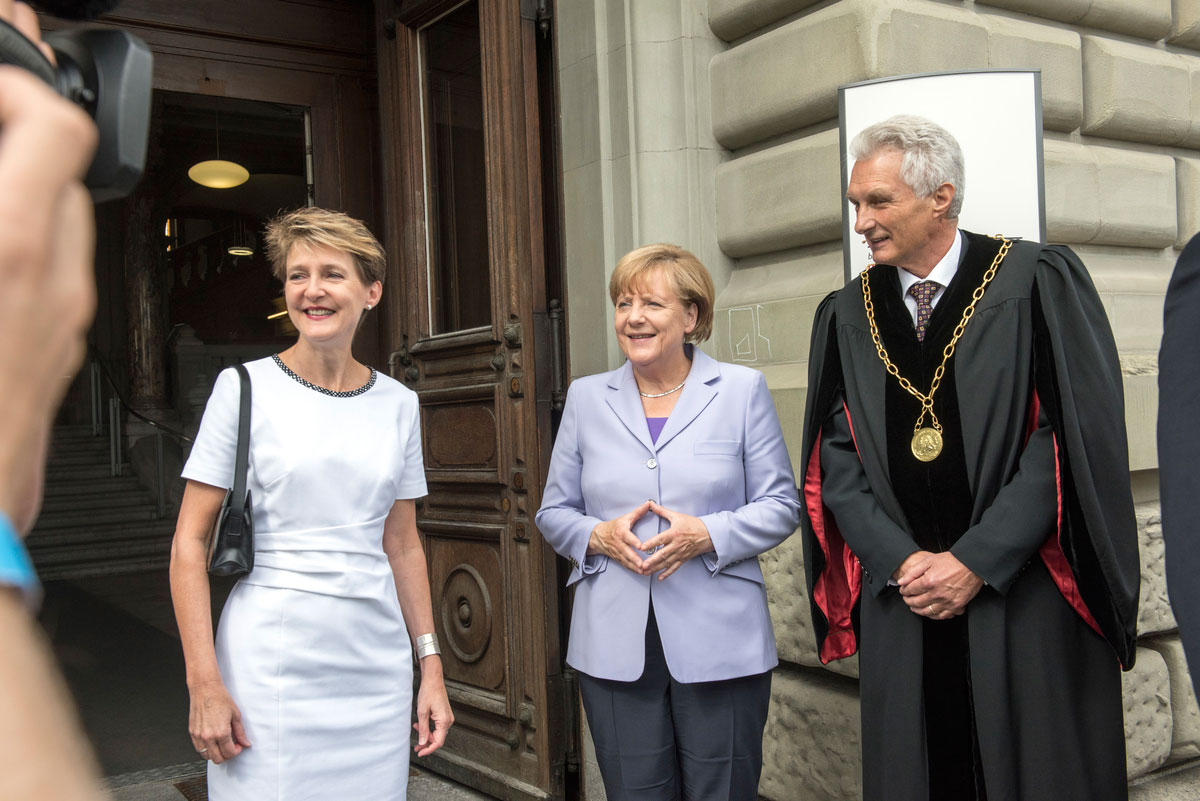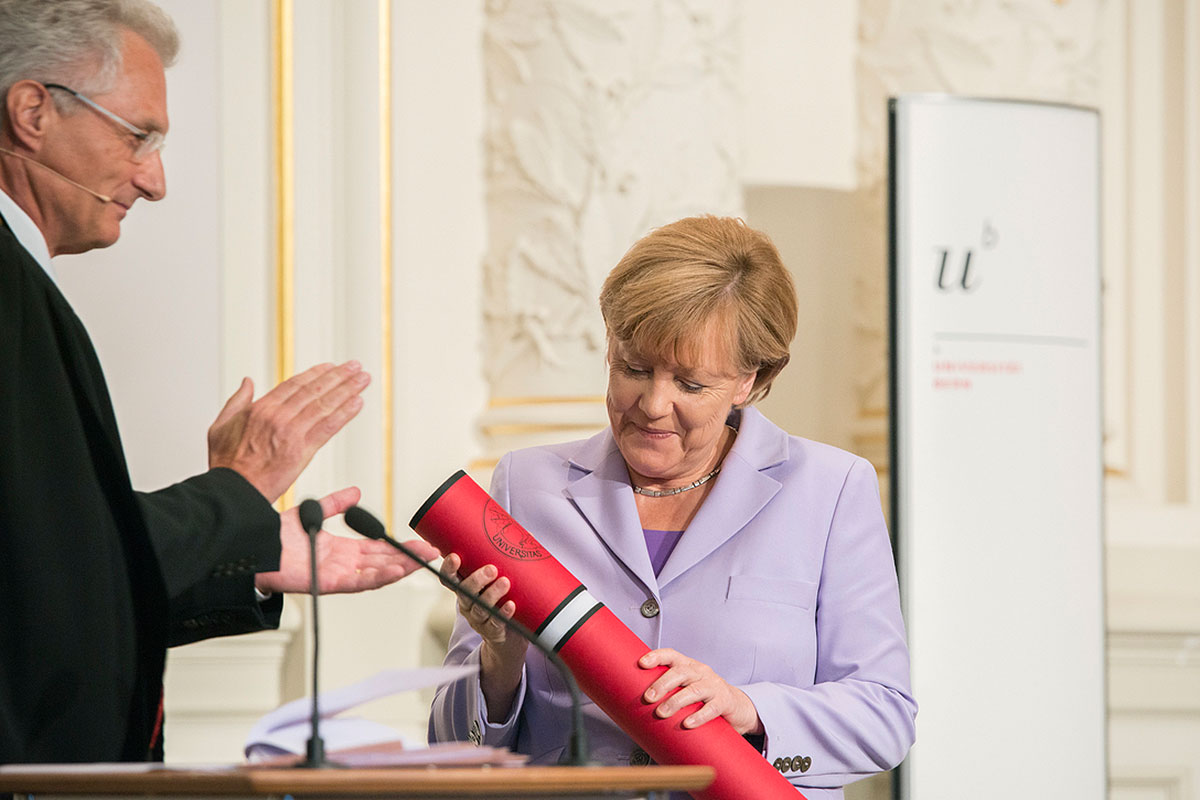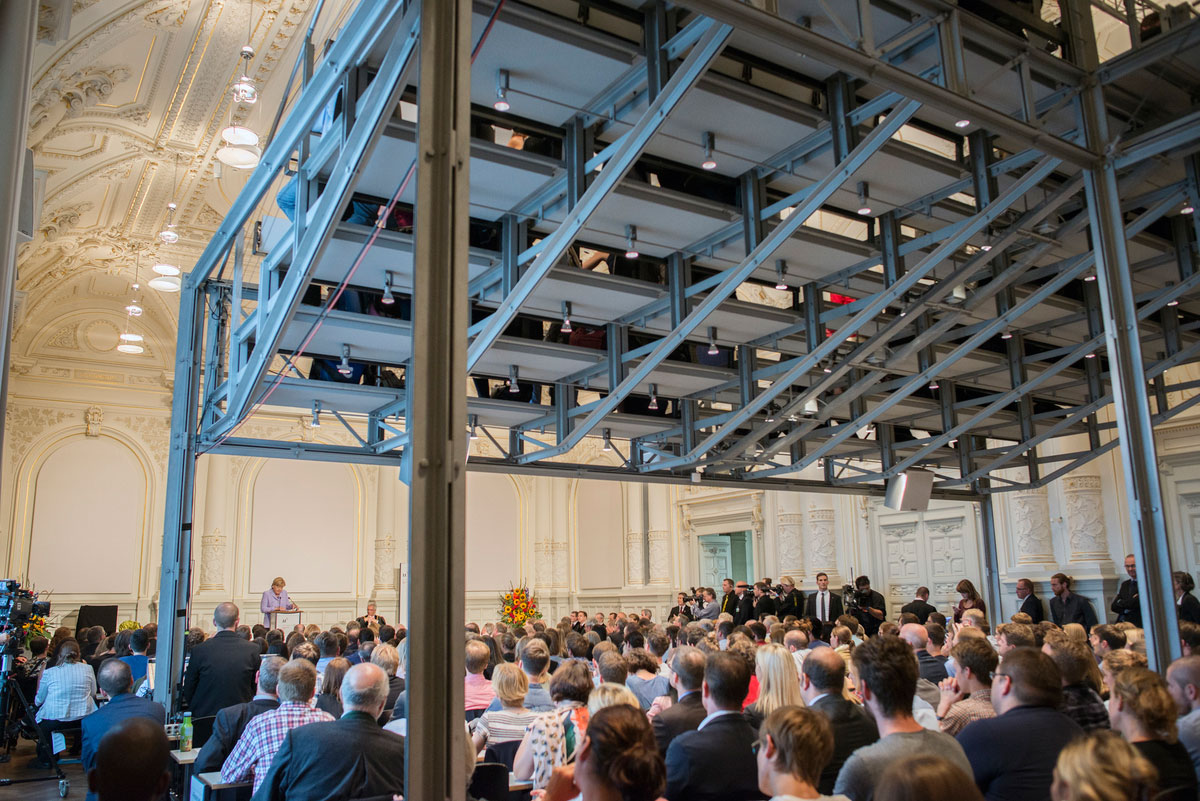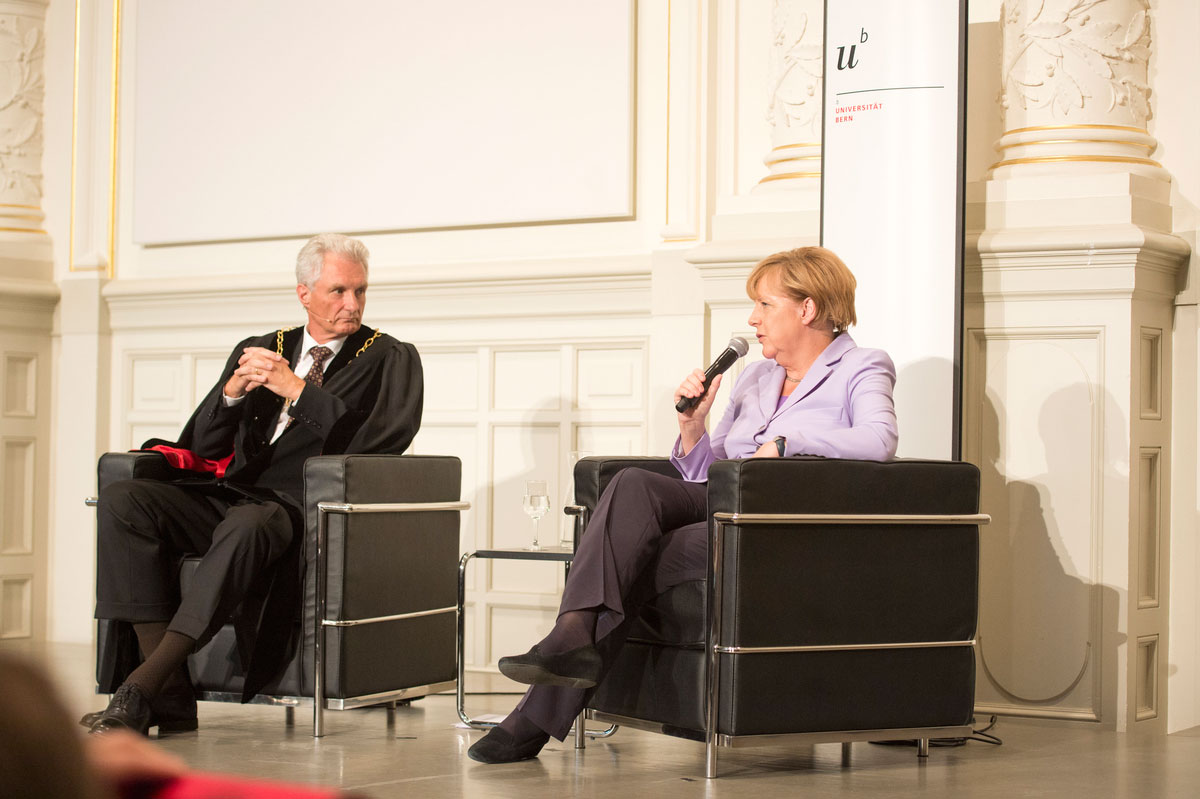Federal Chancellor Angela Merkel: “Rome wasn’t built in a day”
Germany’s Federal Chancellor Angela Merkel has received her honorary doctorate at the University of Bern, which the senate and university management awarded her in 2009. She subsequently addressed the current refugee crisis in her speech.
A festive atmosphere prevailed on Thursday afternoon in the auditorium at the University of Bern, which was filled to capacity. Students – as well as leading figures from the realm of politics, industry and science, alumni, relatives and friends of the university – were waiting for Germany’s Federal Chancellor Angela Merkel.
She arrived at the University of Bern in the company of President of the Federal Council Simonetta Sommaruga in connection with her official visit to Switzerland.

In his introductory remarks, Rector Martin Täuber remembered that the University of Bern had awarded the honorary doctorate to Federal Chancellor Dr. Angela Merkel within the framework of its 175-year anniversary in 2009. The title was awarded for the first time on behalf of the entire university. Täuber says the fact that diploma will only be ceremoniously presented today within the framework of a political visit also has its good sides: “The past years have impressively confirmed that the decision was more than justified from today’s point of view.”
Committed to climate change mitigation
The Federal chancellor shares to commitment to climate change mitigation with the University of Bern, explained Täuber. The University of Bern has pursued climate research on a high international level for a long time. The PhD physicist strongly advocated climate change mitigation as Minister of the Environment from 1994 – “quite early in her career, at a time when this was still not a matter of course”, emphasised Täuber.
In the laudatory speech the Rector paid tribute to the Federal Chancellor as a politician who consistently intercedes for the good of the public in the most varying functions and pursues a policy of dialogue. Moreover, she is a personality who is involved with great dedication to the European integration process, emphatically draws attention to human rights and resolutely counters anti-Semitic tendencies. She also advocates equal opportunities for women. Under thunderous applause the Rector presented the Federal Chancellor the red scroll with the diploma.

Merkel expressed thanks for the dignified reception, the friendly words and the award – and with regard to the late time of the presentation, she remarked: “Rome wasn’t built in a day”! From now on she will feel particularly close to the University of Bern: “The University is justifiably proud of scientists such as Albert Einstein, who qualified as a university lecturer in Bern, as well as its current research.”
Merkel: “Now we are practically challenged”
In her speech the Federal Chancellor spanned a political tour d’ horizon ranging from the Ukraine crisis via the IS, the Switzerland-EU relationship up to the current refugee crisis. Germany will cope with the integration of 800,000 people in need of protection, says the Chancellor, but is dependent on solidarity in Europe so that a fair distribution is achieved. Now it is not only about invoking European values in speeches: “Now we are practically challenged!”

Switzerland and the EU are also challenged because of the implementation of the mass immigration initiative, says Merkel – but thanks to the will to find solutions on both sides the chances for a good outcome are good. Politics are as exciting as science: “In the beginning, you never know what the result will look like.”
Against fear
Merkel led over into the round of questions with the Einstein quote “the important thing is not to stop questioning”. She was asked by students and others present about the future of Greece, security policy – but above all about the European refugee policy. The Federal Chancellor openly avowed that it will be “complicated” to unite the EU on one line – “but we’re working on it.” With regard to the question as to how Europe can be protected against Islamisation, Merkel emphasised: “Fear is not a good adviser. It is better that we should have the courage to once again deal more strongly with our own Christian roots.”

In conclusion, Rector Martin Täuber said: “We are proud that we were able to award you the honorary doctorate. I would like to express my sincere thanks for the considerations you reflected regarding complicated topics which keep us all busy.”